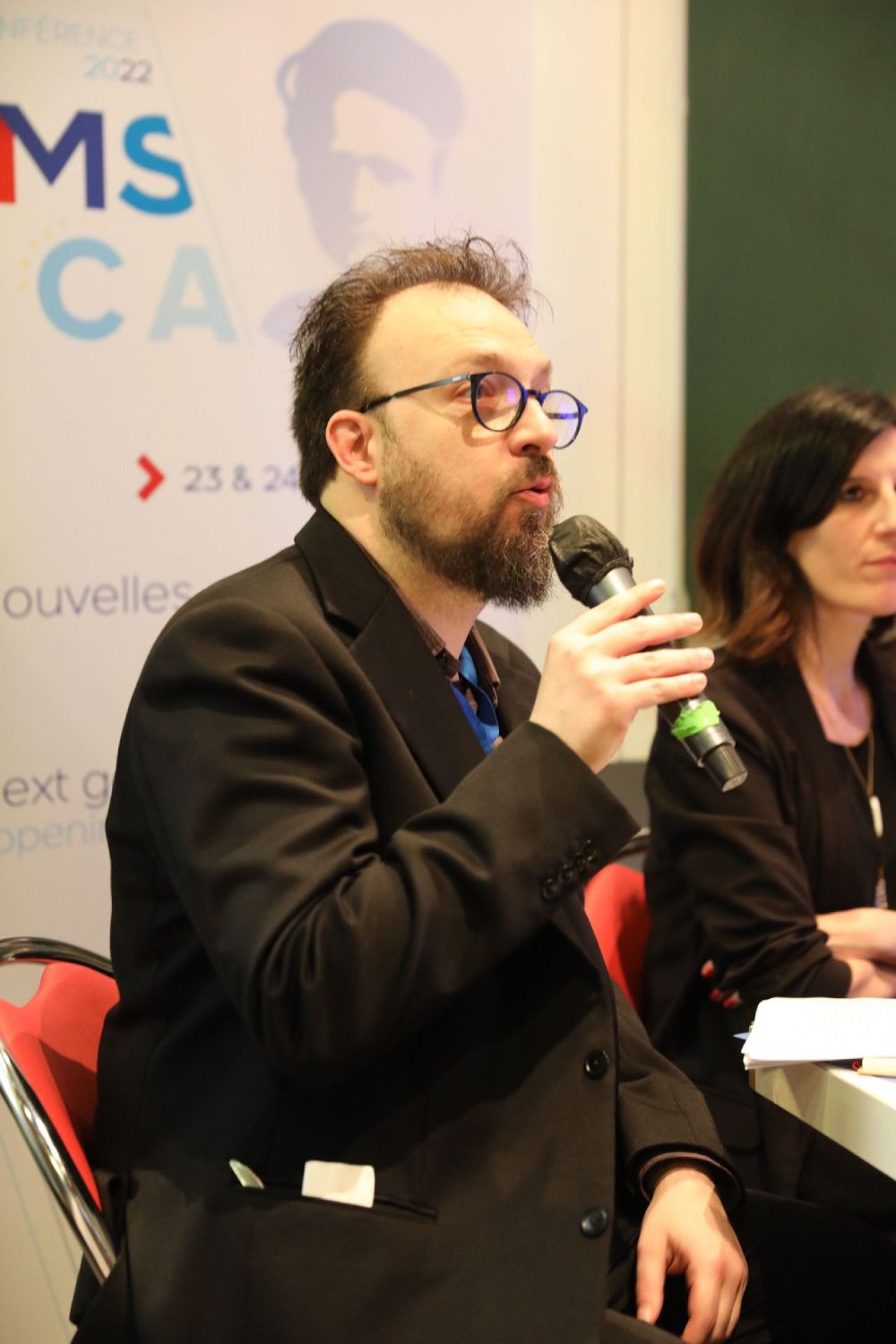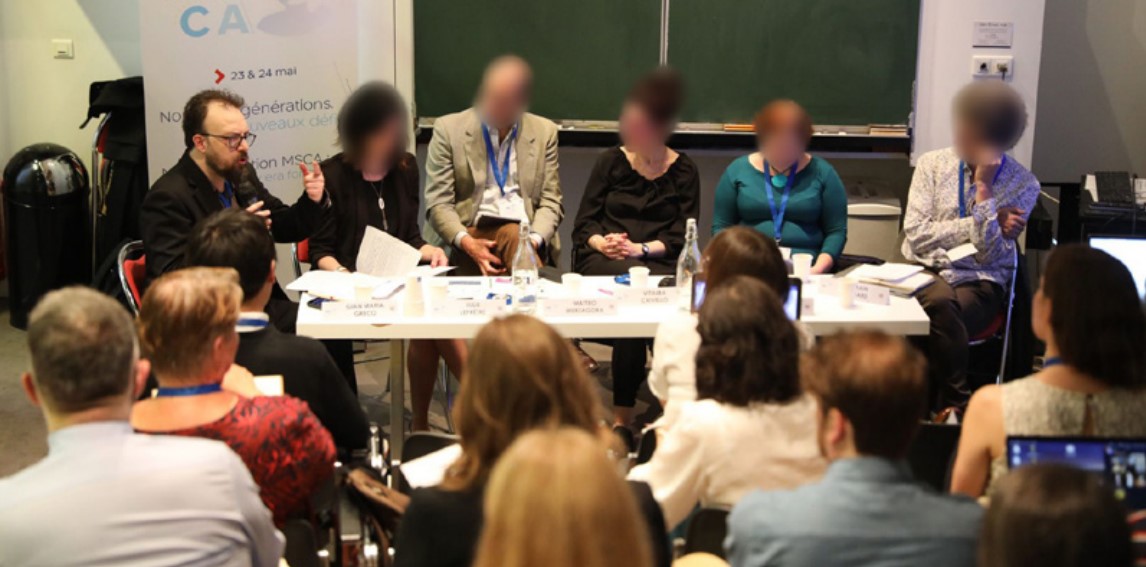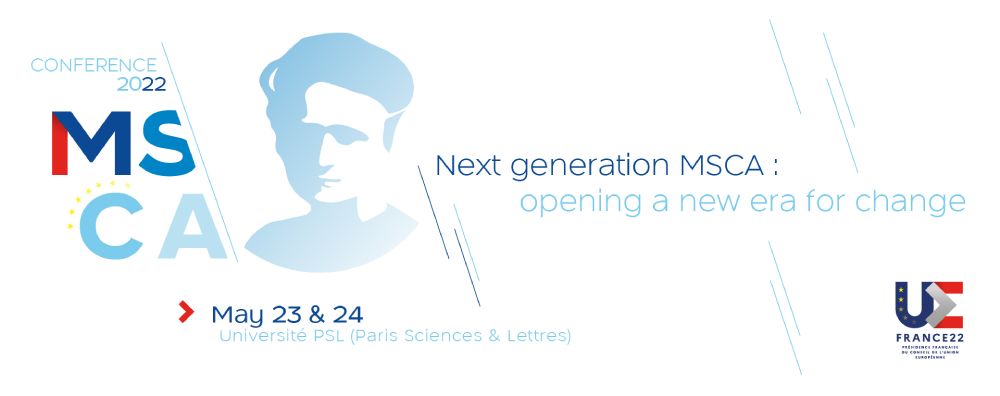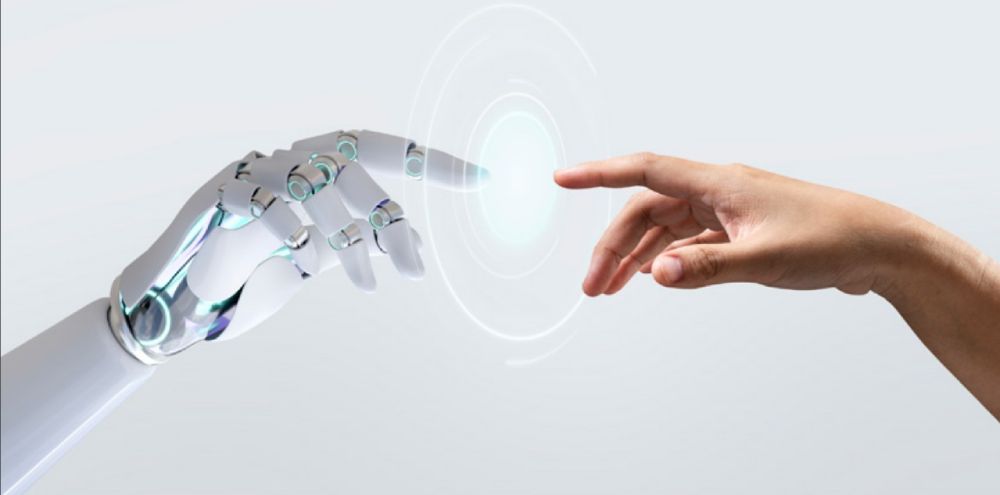MSCA Paris Coverage - Bridging the gap between science and society
Newsletter

Workshop 3 - Closing the gap between research and citizens: Building trust in science with MSCA
In 2022, the annual conference of the Marie Skłodowska-Curie Actions programme was held on 23-24 of May in Paris. MCAA Board members Gian Maria Greco and Giulia Malaguarnera were invited respectively as moderator and speaker, the former, and rapporteur, the latter, of workshop 3 “Closing the gap between research and citizens: Building trust in science with MSCA.” They share with us the main takeaways from the workshop.
The idea of "science with and for society" played a major role in the Horizon 2020 programme and will continue in various forms in Horizon Europe. Indeed, strengthening the relationship between science and society is one of the main objectives for 2021-2027 of the Marie Skłodowska-Curie Actions (MSCA) programme.
The title of the workshop – Closing the gap between research and citizens: Building trust in science with MSCA – can be broken down into two parts. The first one is more general and concerns how to strengthen the relationship between research and citizens.
The second one is more specific and is connected to how the MSCA programme has been contributing to said process and how it can contribute even further.
Two of the elements involved in this discourse are citizen science and science communication. What is citizen science? What is science communication? The two terms have multiple meanings. Depending on context and speaker, they may end up having very different or even opposite definitions. A look at definitions provided in some documents by the European Commission (EC) may help to clear the stage from a potential lack of terminological clarity.

Citizen Science
In “Citizen Science. Elevating research and innovation through societal engagement,” citizen science is defined as hosted on a page on citizen science. We look at the EC page on citizen science, this is defined as “the voluntary participation of non-professional scientists in research and innovation at different stages of the process and at different levels of engagement, from shaping research agendas and policies, to gathering, processing and analyzing data, and assessing the outcomes of research. Broadly speaking, citizen science refers to the participation of people in the research endeavor. Participation is another term oftentimes used in very different ways. It is important to be aware that there is not a single, universal method for participatory processes. There are different levels and modalities of participation, which vary according to contexts, people, topics, and goals. The document states also that “active engagement with citizens and society has the potential to improve research and its outcomes and reinforce societal trust in science.”
Science Communication
Engaging citizens and building trust require communication. Therefore, science communication is the other side of the coin. Similarly, there are many definitions. The EC publication “Science Communication”, which reports some recommendations based on Horizon 2020 experiences, states that “science communication entails presenting science related topics in a format which is designed for and understandable by the intended audience and remains faithful to the evidence. Science communication can utilize many methods, and takes various forms.” Why is this important? It is relevant because “in order to have the public on board for solutions to the challenges our society faces, there is a need to build trust also through clear and effective communication. Scientists should consider it their responsibility to make their work understandable by explaining the underlying concepts in order to have a better informed and engaged public in the world of science.”

Trust
A common trait of the two documents is the focus they place on trust. Trust is a semantically rich concept. There are two dimensions that seem especially relevant when speaking of “trust in/and research”. On the one hand, the relationship that citizens have with research and how to make it evolve towards a mature cooperation. On the other hand, a biased vision that researchers may have towards citizens.
Trust is a two way street. So far, the default position in the science-and-society discourse has been about the need for society to trust research. However, there will never be trust in research until researchers fully recognise the public as a legitimate knowledge provider. It is not rare to see researchers dismiss the role and contribution that people can have. By refusing to give legitimacy to its audience, the research community risks decreasing people’s confidence.
Trust requires sharing: whether some experience or knowledge. In the case of citizen science, all the parties involved – researchers, citizens, policy-makers, and so forth – should be integrated in each step of the process. Involvement of citizens from the beginning is key to build their confidence and willingness to participate in the other steps of the process. For instance, citizen science projects that involve citizens at later stages have more difficulties to engage them and be successful. Early involvement also helps citizens develop a sense of belonging to the community of research producers. Engaging society also requires and demands transparency. In participatory projects, researchers should clearly explain to the citizens involved what is their role, how they will engage and be engaged, how experts and policy-makers are involved, and what are the expected outcomes.
Contesting and supporting
Researchers are required more and more to integrate science-and-society practices in their work. For instance, activities about open science, citizen science, responsible research and innovation, and science communication are becoming mandatory or preferential criteria in the evaluation of project proposals. However, citizen science activities cannot become mandatory. Before engaging in the effort to carry out such activities, researchers should ask themselves: Am I really interested in what other people do, in what they think? Why do I need data produced by people? Do I have (research-wise) something to learn from citizens’ involvement? What will people learn? Engaging in citizen science actions should be a choice by the researcher based on the answers to those questions, not a mandatory activity.
The constantly increasing pressure towards adopting those practices risks placing the burden only on the researchers’ shoulders. Strengthening the trust between research and society as well as involving citizens in the research endeavor require training and specialized support. Researchers need to be taught to think beyond their own internal activities and open up to the outside world. In order to do that, they should be provided with proper time and recognition.
Having citizens integrated into research activities as well as being able to listen to and communicate with them requires a substantial change in research culture as well as a whole new set of expertise. The usual science communication tools are no longer enough. Most importantly, these activities cannot take place in a void. Researchers cannot carry everything on their shoulders. There is the need for a whole infrastructure, where other actors can be mediators that facilitate the communication between researchers and citizens. Researchers should be surrounded by competent and supportive infrastructures. Institutions should play a pivotal role in providing support to researchers on those activities. Yet institutions, the evolution of the link between science and society, and the demands placed upon researchers are moving at different paces.
Overall, the relationship between science and society must be recognized as a proper dimension of scientific activity. There is the need to establish a new pact between researchers and citizens. A pact that can bring more awareness, transparency, trust and reciprocity in their relationship, while recognizing the contribution that citizen participation in research could bring.

Acknowledgements. We are grateful to the other participants – Vitaba Crivello (European Science-Media Hub), Miguel Francisco (MSCA Fellow), Lenka Hebakova (Technology Centre CAS), Romain Julliard (Muséum National Histoire Naturelle), Julie Leprêtre (European Commission), and Matteo Merzagora (Association TRACES) – and to Eva Naidu (University PSL).
Gian Maria Greco
MCAA Board member
gianmaria.greco@mariecuriealumni.eu
Twitter: @GianMariaGreco
Giulia Malaguarnera
MCAA Board Member
giulia.malaguarnera@mariecuriealumni.eu
Twitter: @GMalaguarnera